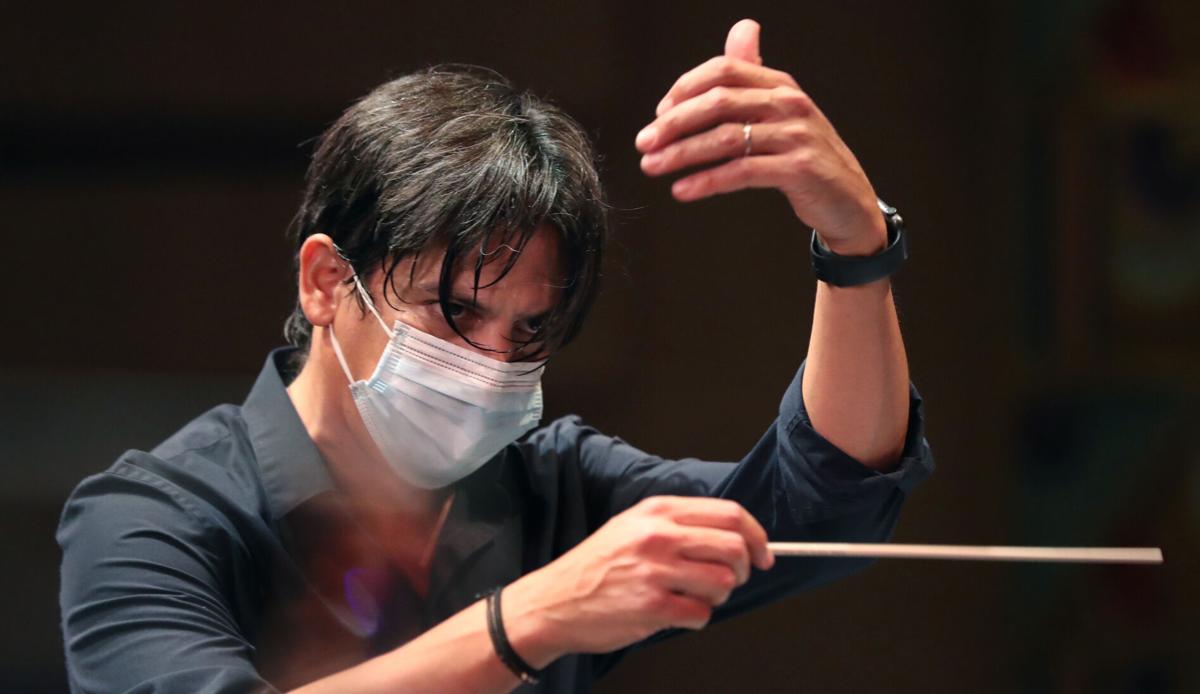Tucson Symphony Orchestra is teaming up this weekend with the University of Arizona School of Theatre, Film and Television for its season finale.
While the orchestra performs Mendelssohn’s incidental music for “A Midsummer Night’s Dream,” a half dozen student actors will perform scenes from Shakespeare’s famous play.
TSO Music Director José Luis Gomez said the students will not perform the play in its entirety, but the scenes “will give a fair amount of the whole piece.”
Mendelssohn composed his incidental music for a production of “A Midsummer Night’s Dream” in 1842, a few years before his death. It was the composer’s second stab at composing music for the play; in 1826, when he was just starting his career, he composed an overture to the play, which was later included in the incidental music.
Mendelssohn’s “A Midsummer Night’s Dream” includes his famous “Wedding March,” which has invited brides down the aisle for nearly three centuries.
Gomez said when he was initially mapping out the 2021-22 season, he imagined having vocalists accompany the orchestra with the Mendelssohn, but he shifted gears when it became clear the pandemic wasn’t letting up.
The orchestra instead decided to have actors act out scenes that fit the music.
“Who doesn’t want to play this great music? This is one of the best compositions by Mendelssohn,” Gomez said last week from Chicago, where he was guest conducting with the Elgin Symphony Orchestra.
Gomez paired the Mendelssohn with Schubert’s Symphony No. 9 “Great,” which has a history with Mendelssohn. The German composer was the first to perform Schubert’s symphony in public a decade after Schubert’s death.
During his relatively short lifetime — he died at 31 — Schubert was mostly known for composing songs, largely because he couldn’t afford to publish many of his orchestra works. After his death, Robert Schumann discovered a dusty manuscript of the Ninth Symphony and took it to Mendelssohn.
“This is music that is up to us musicians to find and discover, and no wonder we consider this one of his greatest,” Gomez said. “It’s a great symphony to end the season, and it’s fantastic.”
Under Gomez, the TSO is aiming to perform all seven of Schubert’s symphonies. So far they have performed his Second and Fourth as well as his Eighth in B-minor “Unfinished.”
This weekend’s performances at 7:30 p.m. Friday, April 8, and 2 p.m. Sunday, April 10, close out what Gomez said has been an exciting season.
“We came back after two years of silence, and that’s the most important thing that made this season exciting,” he said. “The connection we had with the audience and the connection with the community, we are confident that we are going to continue doing this for the next 94 years because the city wants it, the audience wants it and the musicians want it. It has been a fantastic season of believing in what we are and what we want to do.”
This weekend’s performances will be at Tucson Music Hall, 260 S. Church Ave., and tickets are $17-$83 through ticketmaster.com





